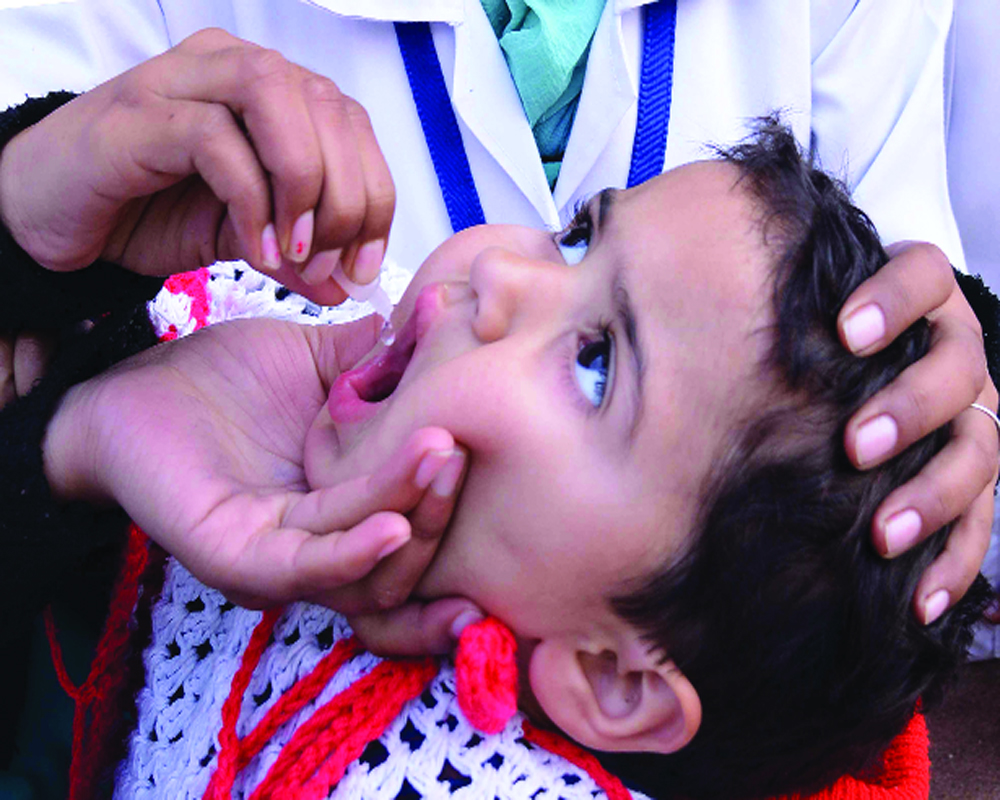Overcoming health challenges is possible, and voices like Rotary's are crucial
Many of the nation’s most notable achievements over the past few decades have emerged out of some of the biggest healthcare challenges. For example, the country’s impressive immunisation programmes today, including the response to Covid-19, are rooted in the early lessons learnt during the eradication of smallpox and then later, the elimination of polio. So, as we continue to intensify Covid-19 immunisation drivesin rural areas, it is important to reflect on our history and realize that we are efficiently equipped to handle the challenges that lie ahead. The government’s focus after 1947 was the eradication of vaccine-preventable diseases such as smallpox, and India played an important role in the global campaign with support from International Tuberculosis Campaign (ITC), UNICEF and the World Health Organization (WHO). As a first step, the BCG Vaccine Laboratory established operations in Guindy, Chennai in 1947. By August 1948, BCG smallpox immunizations were available, and by 1956, the BCG smallpox vaccine had been introduced to every State. Several parts of the country still reported outbreaks but innovations and newer vaccine delivery techniques allowed India to conquer smallpox. India was declared free of the disease in 1977. The BCG Vaccine Laboratory then continued its efforts to develop vaccines against other diseases such as influenza and rabies, but the crowning achievement arrived in 1970 as both public and private manufacturers in India began to manufacture vaccines for diseases such as diphtheria, pertussis, tetanus, and polio on a mass scale. As vaccines became more readily available, a national immunization program-the Expanded Programme of Immunization (EPI)-was established in 1978, with the goal of reaching 85 per cent of the country’s children under the age of five and pregnant women with vaccines against diphtheria, pertussis, tetanus, poliomyelitis and childhood tuberculosis by 1990. This program was carried forward by Mission Indradhanush (MI) in 2014, which sought to accelerate the pace of full immunization for children up to 2 years of age and pregnant women. Thereafter, Intensified Mission Indradhanush 2.0 focussed on immunizing all high-priority districts against 10 vaccine preventable diseases by 2030.
India has always been cognizant of the fact that public-private organizations and governments working together are instrumental in controlling diseases that can be prevented by immunization. Such was the case when the Prime Minister advocated for the EPI and such was the case when Rotary became a founding member of the Global Polio Eradication Initiative (GPEI) in 1988 along with the World Health Organization(WHO), UNICEF, the US Centers for Disease Control and Prevention. The initiative was later joined by The Gates Foundation and GAVI, along with the Vaccine Alliance. It was a moment of pride when the last case of polio was reported in 2011, and when India was certified polio-free in 2014. Now, the polio infrastructure that Rotary, its members, and GPEI partners helped build is being used to fight Covid-19 and to deploy and deliver Coronavirus vaccines around the world. An effective approach involved recruiting school teachers and training children as part of Bulawa Toli (children’s brigade) to bring mothers with their newborn to the vaccination sites during MI weeks. The growth of partnerships between civil society and governments is a trend that we hope continues, particularly as we continue to battle Covid-19. India’s history demonstrates that overcoming global health challenges is possible, and voices like Rotary’s are crucial in establishing the public-private partnerships necessary to tackling the pandemic effectively. With the lessons of the past to guide us, and the infrastructure at our disposal, we must pick up the pace to conquer the global pandemic.
(The writer is President, Rotary International. The views expressed are personal.)


























